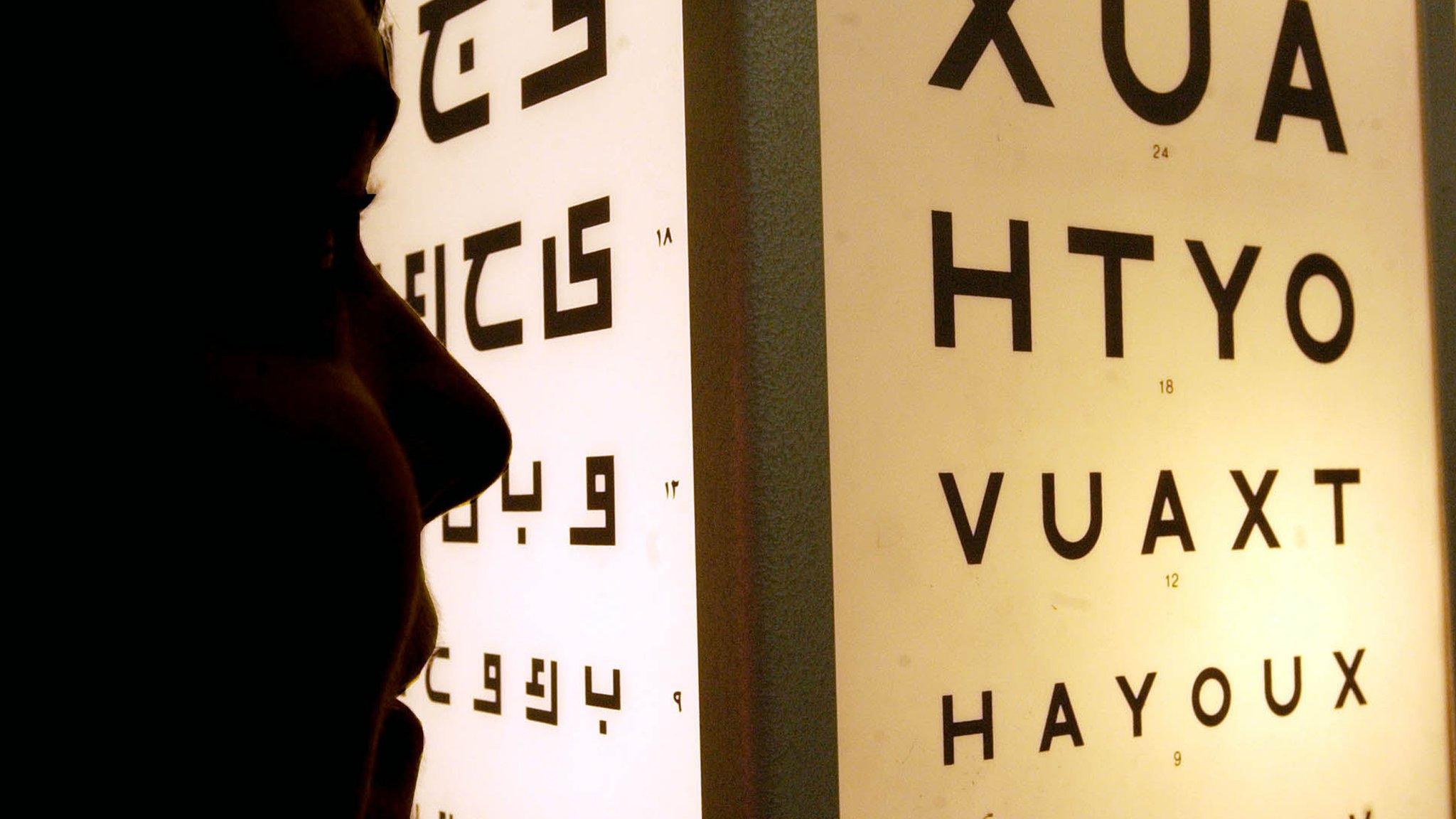People going blind waiting for care, RNIB Cymru says
- Published
The RNIB says there is a growing demand for appointments due to an ageing population
People are going blind unnecessarily because of "dire capacity problems" in eye clinics, a charity has said.
The Royal National Institute for the Blind (RNIB) said clinics cannot cope with the rise in underlying causes of sight loss, like diabetes and obesity.
An ageing population and more treatment options have led to a surge in demand, it added.
But the Welsh government said RNIB Cymru's report, external does not reflect the current position of services in Wales.
The report's findings are based on interviews with practising specialists in Wales, claiming targets set by the Welsh government mean that priority is given to first appointments.
Patients who need follow ups and treatment often have to wait much longer than they should, the charity claims.
The report said: "It is of grave concern that many health boards could not tell us how many patients are waiting to be seen.
"The bureaucratic systems that are in place mean that patients disappear into a black hole."

Case study
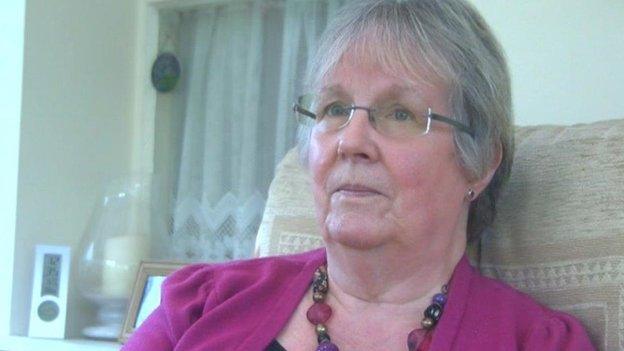
Heather Greene has a progressive eye condition
Heather Greene, 72, has wet age-related macular degeneration, which is one of the leading causes of visual impairment in the UK.
She needs injections every eight week, to help slow the progressive condition.
She went 15 weeks without an injection when her regular eye care treatment was cancelled due to staff shortages at Ysbyty Cwm Rhondda.
Because of the cancellations she saw a marked deterioration in her eyesight.
According to the RNIB Cymru report, her experience is far from unique.

It called for new systems to ensure eye clinics have the appropriate information to prioritise appointments in line with clinical need and not waiting time targets.
It also wants patients to be informed of the risk to their sight if appointments are delayed or cancelled.
The charity said it made a "very conservative estimate" that 48 people each year in Wales were losing their sight because they were waiting too long for an appointment.
The estimate is a "best guess" based for the whole of Wale based on figures supplied by one health board.
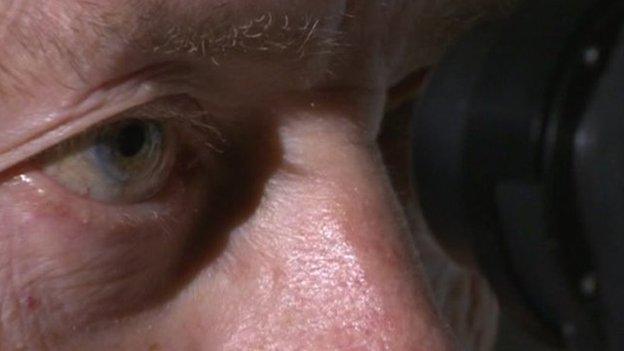
RNIB Cymru said eye appointments should be decided by 'clinical need rather than waiting-time targets'
But the charity added that the 10 consultant ophthalmologists from six health boards it interviewed all stated that patients are unnecessarily losing their sight while on the waiting lists.
Chris Blyth, a consultant who speaks on behalf of the Royal College of Ophthalmologists, said: "We recognise the issues raised in the report particularly the risk of patients coming to harm from delayed follow-up appointments."
However, the Welsh government has disputed the charity's findings.
"This report, already more than six months old, does not reflect the current position of services in Wales and is based on a very small survey sample," said a spokesman.
"The latest figures show the number of people certified as having a visual impairment in Wales has fallen every year for the last five years."
Deputy Health Minister Vaughan Gething said the NHS was not failing but was saving the sight of 370 people a year.
He said the figure for the number losing their sight produced by the charity had been "plucked out of the air" and that the RNIB had only spoken to a "remarkably small sample" for their report, interviewing 15 people including only two optometrists out of 770 practising in Wales.
Mr Gething however added: "We recognise there's more we should expect the NHS to do and there's clearly no room for complacency.
"I've raised the issue of eye health care with every health board since my appointment. We do take this very seriously and recognise there's a real challenge in ensuring we make the best use of resources in hospital services and there's more we need to do in primary care as well."
- Published18 September 2013
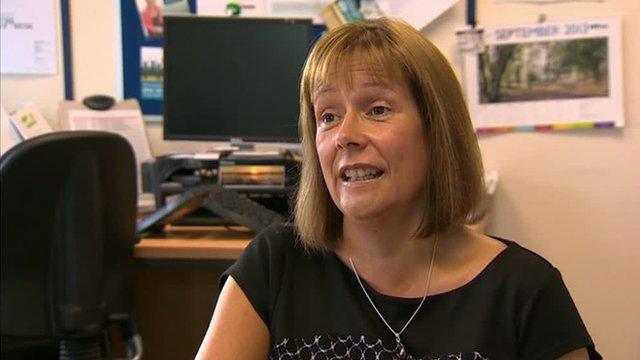
- Published15 November 2012
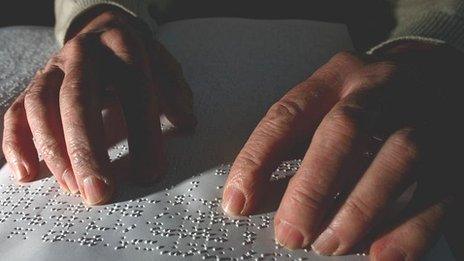
- Published6 July 2013
